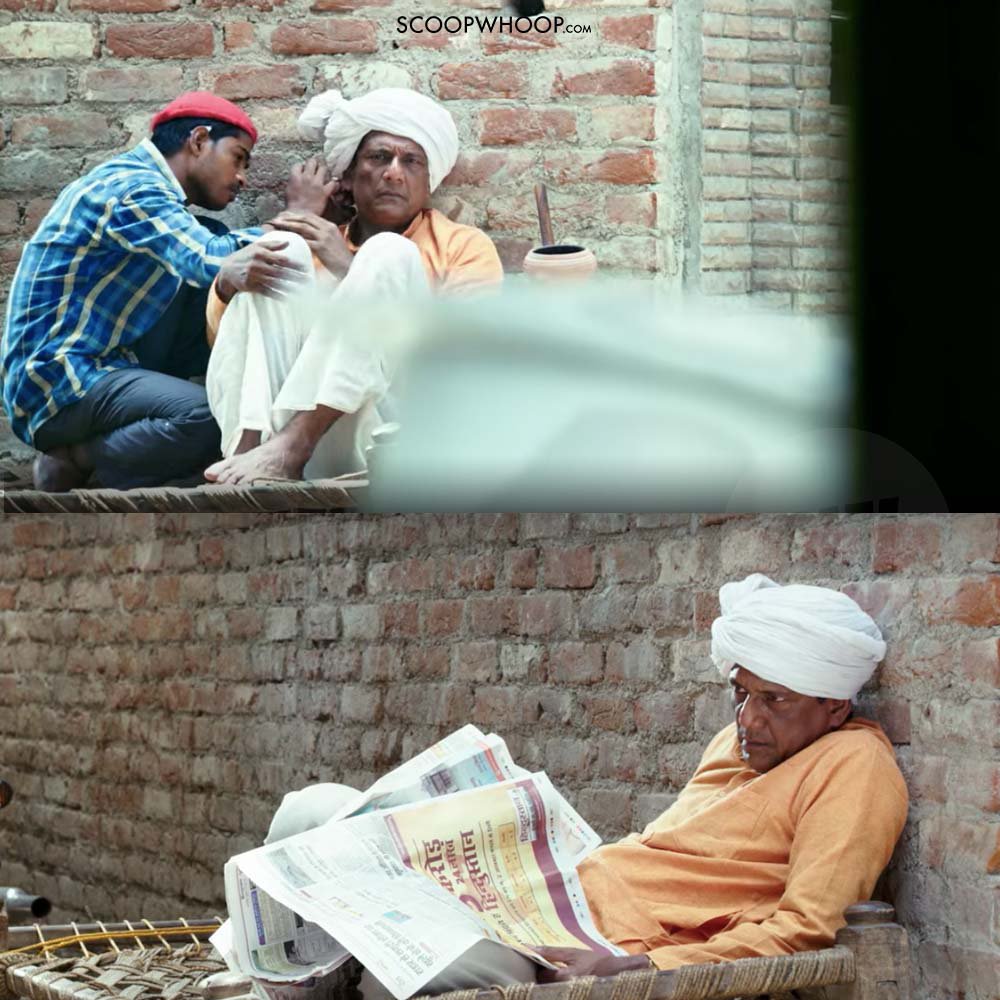Axone, which derives its name from a traditional Naga dish talks about the struggles of a group of North easterners living in New Delhi. Their struggle with cooking a dish that brings forth the racism and discrimination that plagues their lives.
Here are our favourite scenes from the film that made us fall in love with it:
1. When Bendang tells Chanbi that he can’t sing Hindi songs anymore.
Bendang struggles with Hindi, which isn’t his first language. His need to adapt in another city for work, tugs at the heart strings of everyone who has lived away from home.
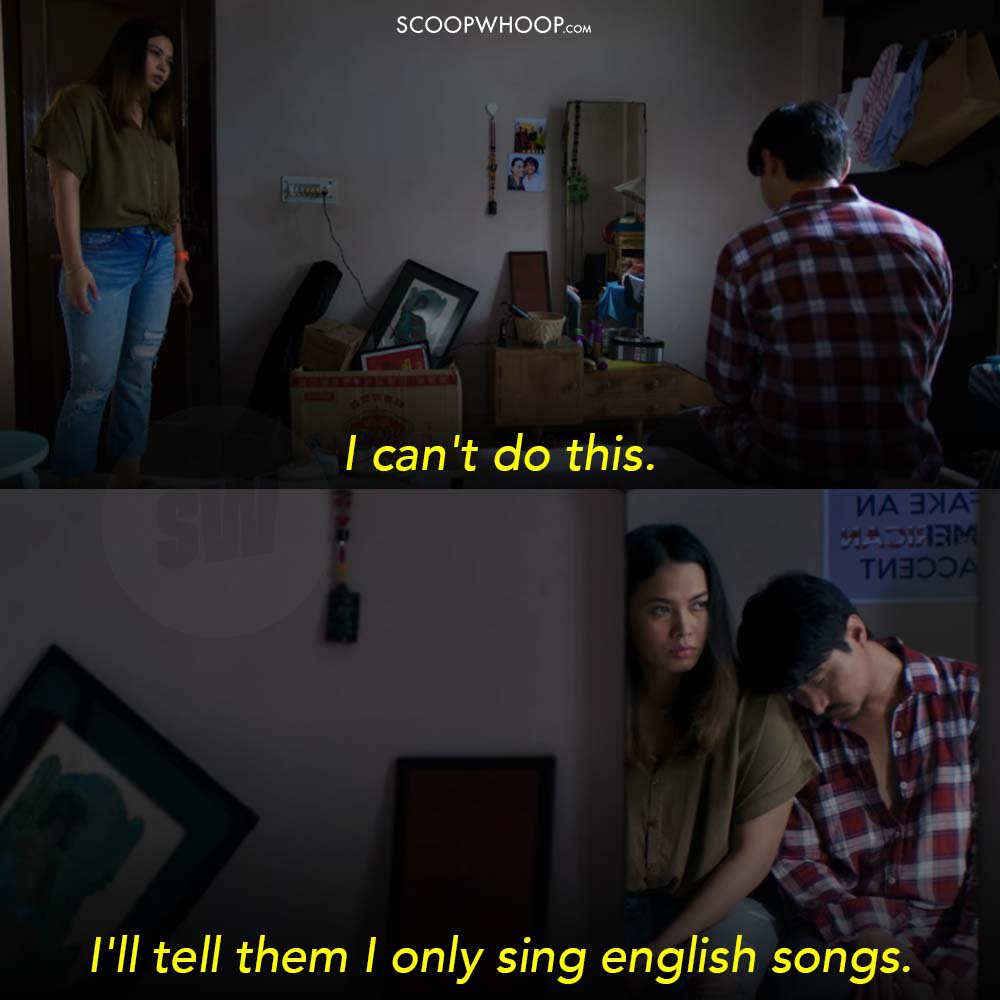
2. When Upsana convinced her neighbour to let her cook the dish.
The only person who didn’t create a fuss is someone who herself knew what it feels like to live in a city that is culturally different from your own.
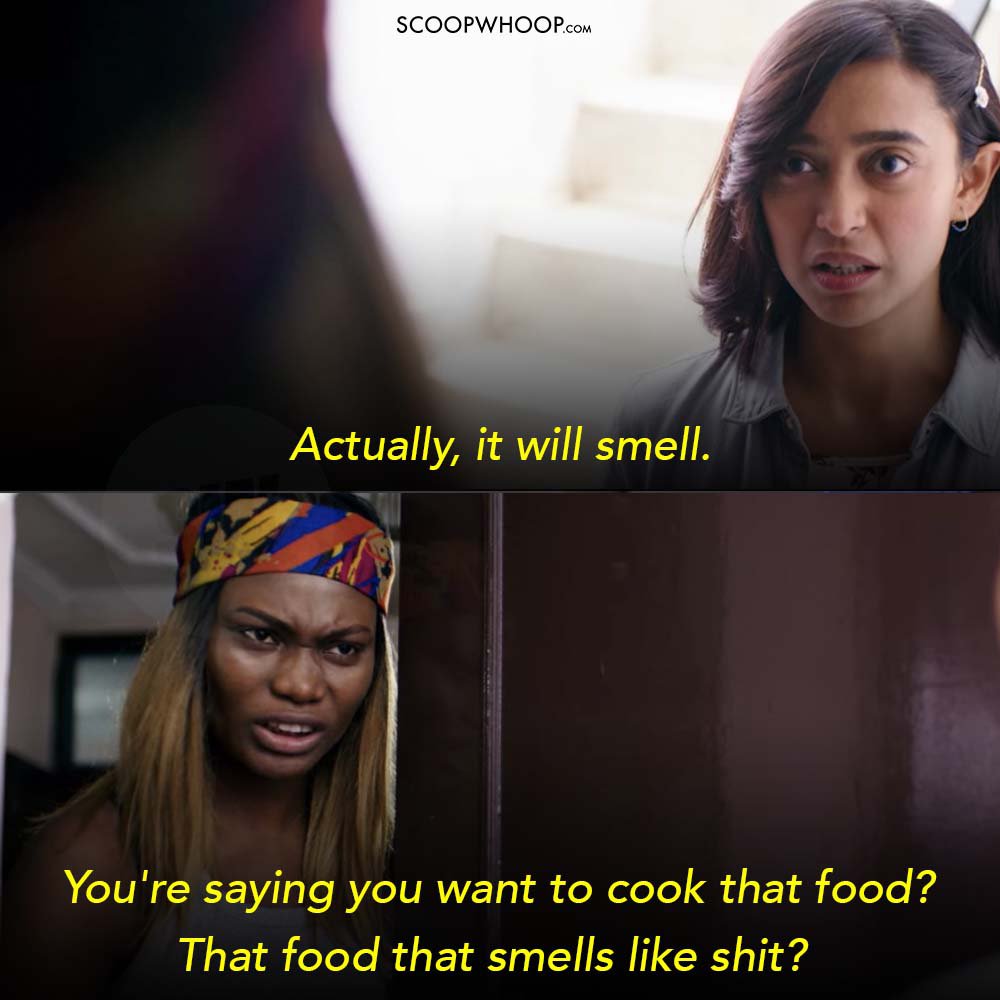
3. When Chanbi was harassed by a random stranger and Bendang swept it under the rug.
Chanbi called out the man who made lewd remarks towards her and when she confronted the man, her boyfriend – Bendang said he didn’t know what was happening. The scene ends with the harasser slapping Chanbi because she continued to fight back.
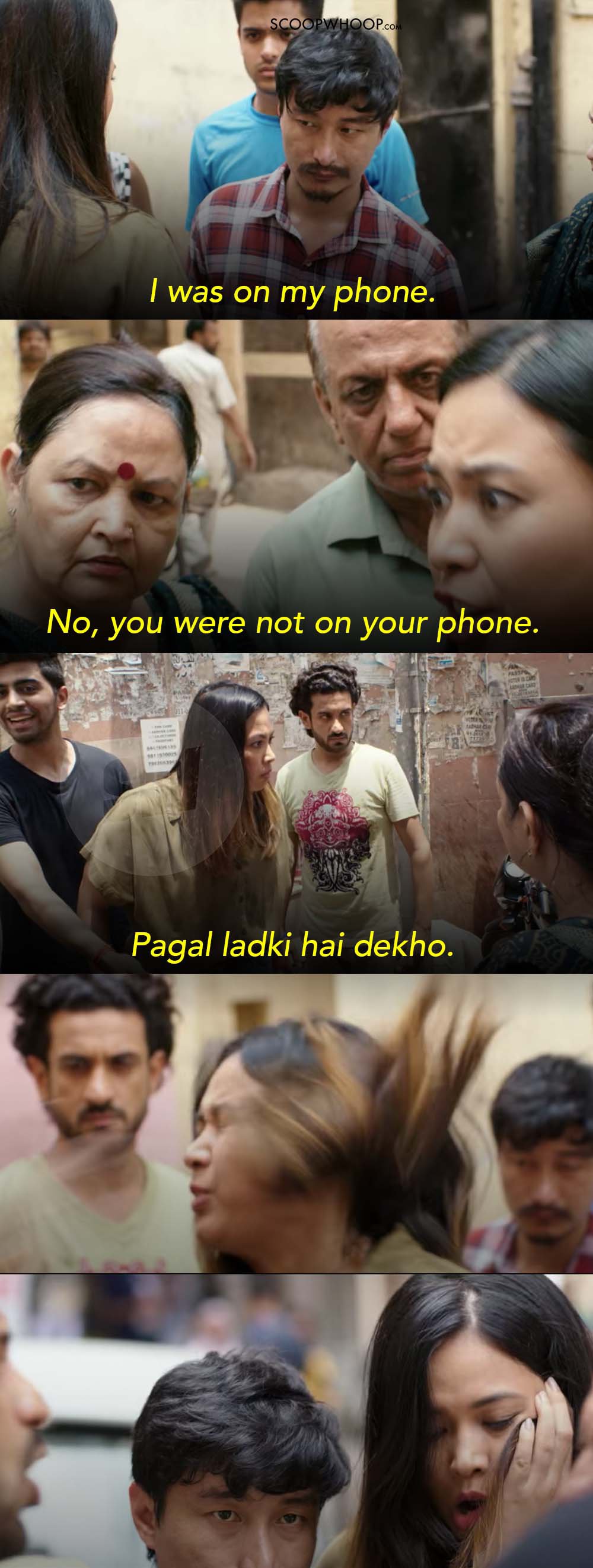
4. When Zorem goes to the landlady’s house and we meet Shiv for the first time.
In order to get some help to cook Axone, Zorem decided to make the landlord’s son, Shiv a part of the plan. This scene is also the introduction of Vinay Pathak who plays a small role in the film. We’re quite unaware of how important both of them are to the story at this point.
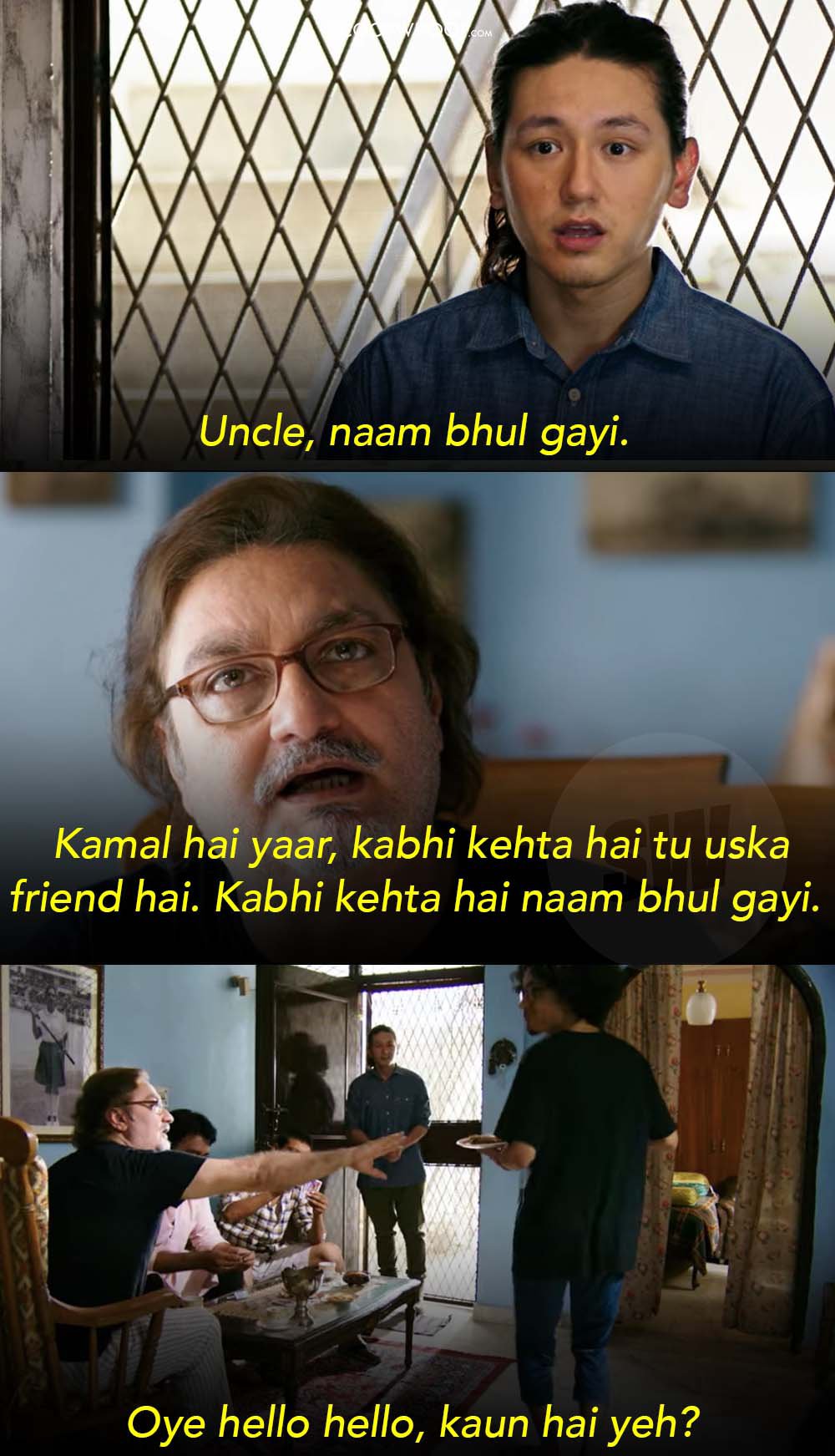
5. When the neighbours attack Chanbi for cooking Axone in her apartment.
The neighbours are quick to attack Chanbi and blackmail her that they’ll throw ‘these people’ out of the area because of the bad-smelling dish. The scene ends with Chanbi suffering a panic attack and Shiv taking her to the hospital.
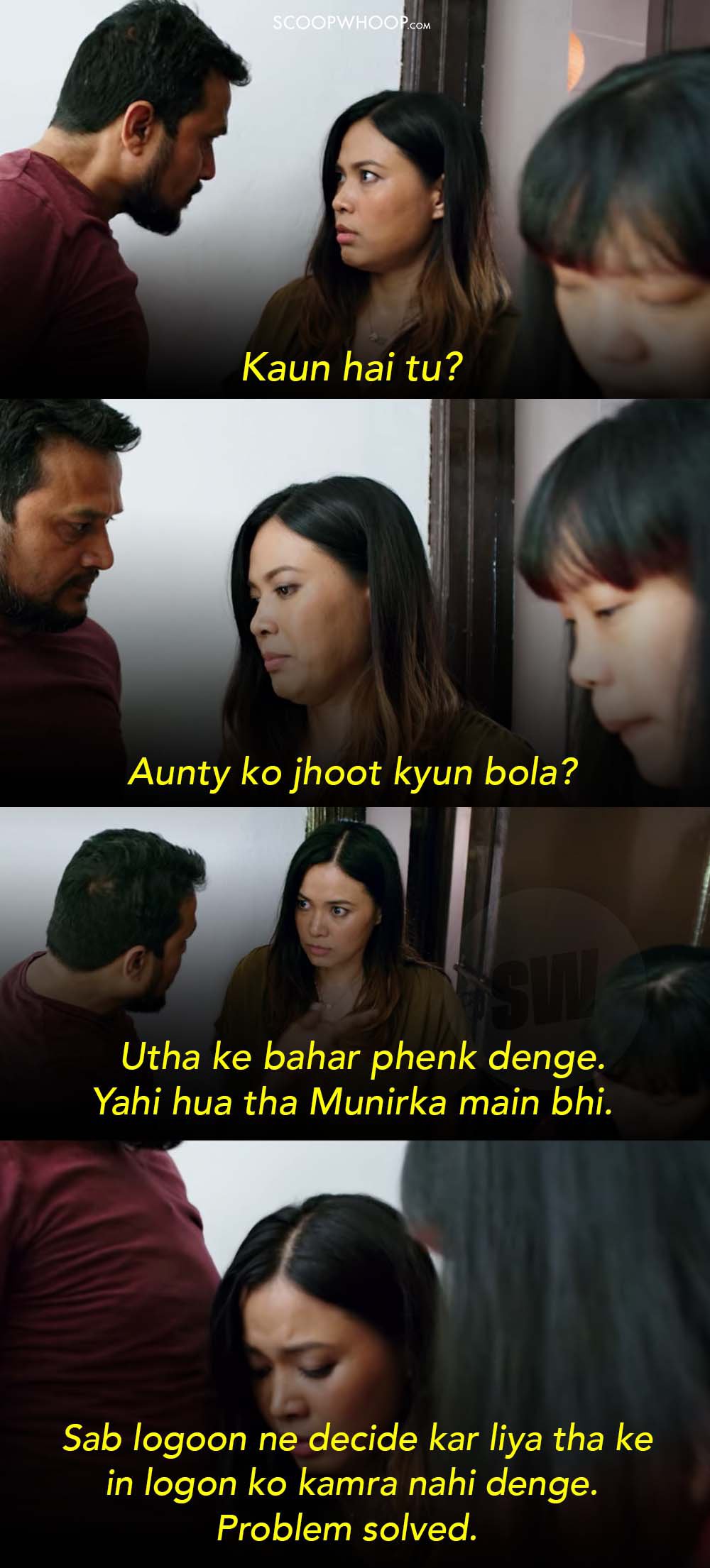
6. When Zorem puts aside his personal feelings for Meenam and shuts shop for his girlfriend.
Zorem shuts his shop to help Upsana cook Axone for Meenam’s wedding, despite the fact that Meenam is his ex-girlfriend and they didn’t end on good terms. Simply because they are all the family they have.
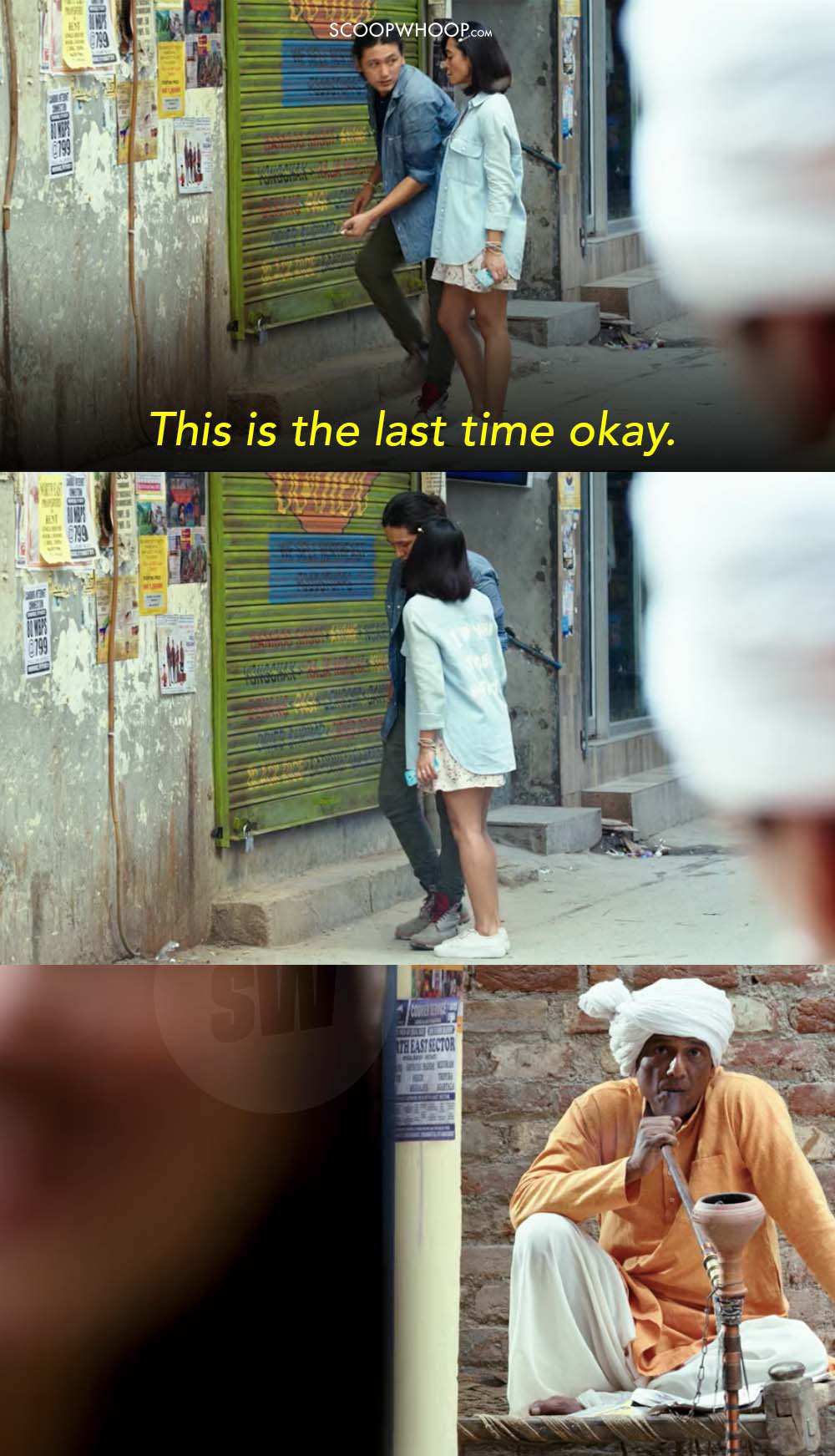
7. When Chanbi’s friend tries to give her some insight on the differences that stand between ‘us’ and ‘them’.
Despite being married to a Sikh man, Chanbi’s friend tries to make her understand the cultural differences that are present in something as simple as food by giving an un-bias opinion.
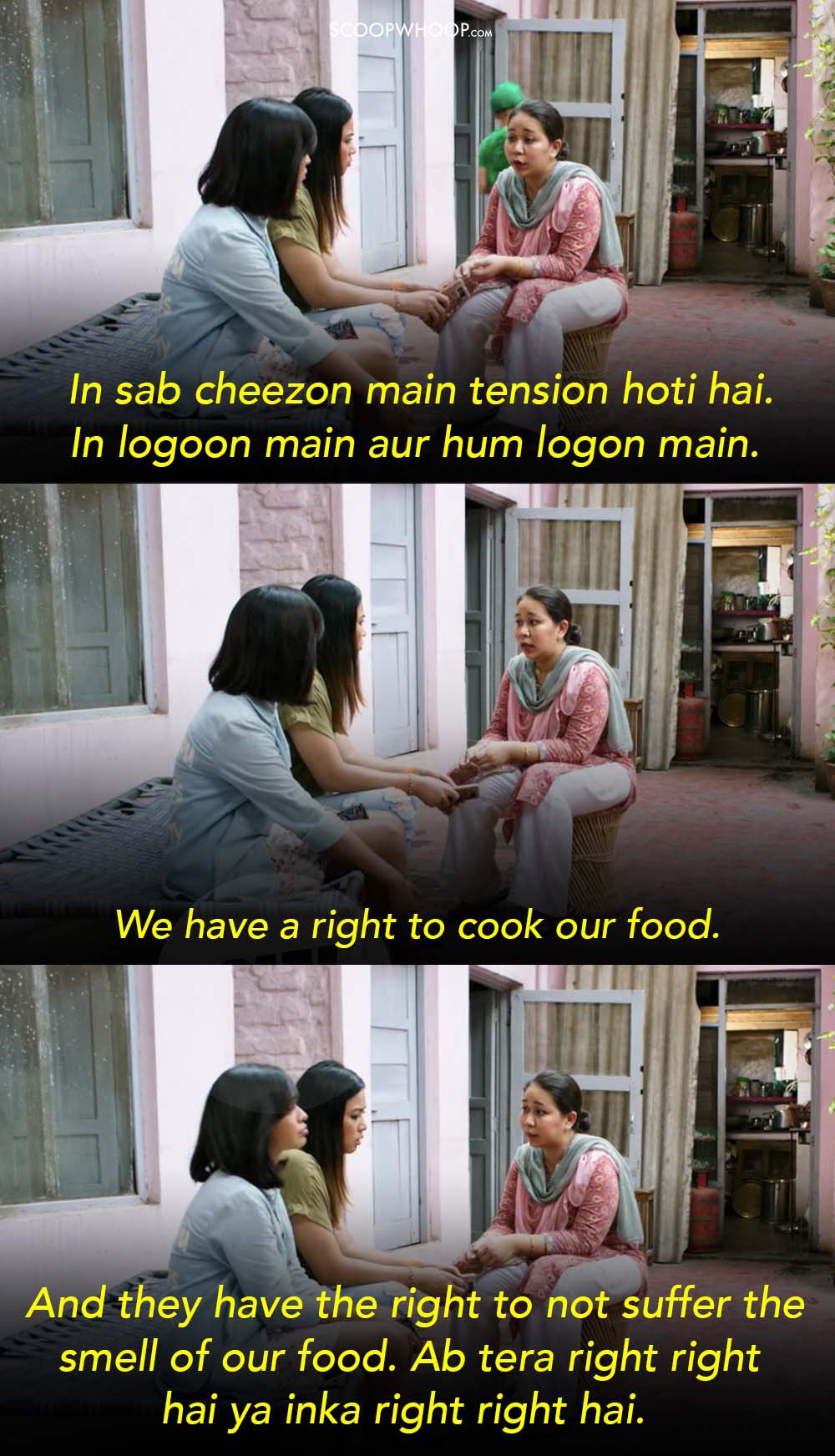
8. When the son of Chanbi’s friend is the target of a racist remark.
Though culturally a part of the society set in New Delhi, he still has to face parents who perpetuate discrimination.
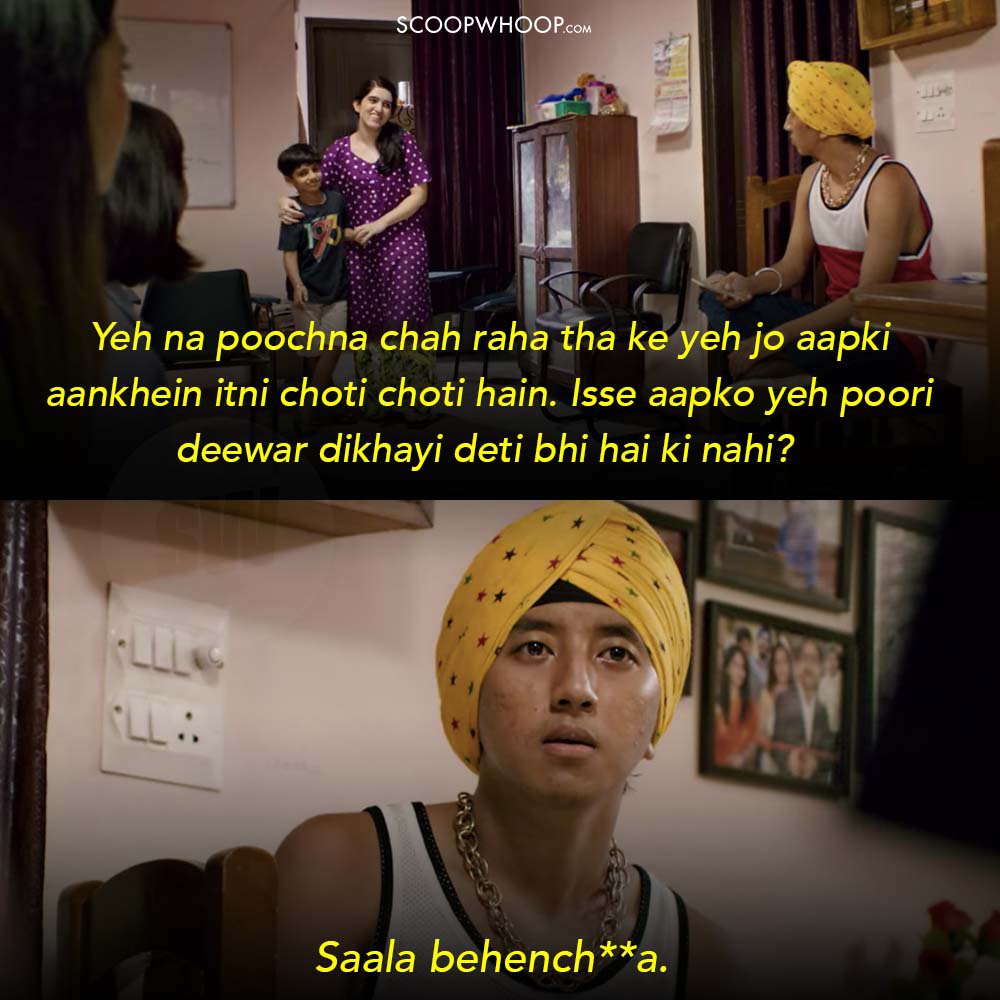
9. When every single one of them tries to pull strings to find a place to cook.
This scene draws emphasis to something as simple as cooking your own food as everyone in the group begins making phone calls and pulling strings.
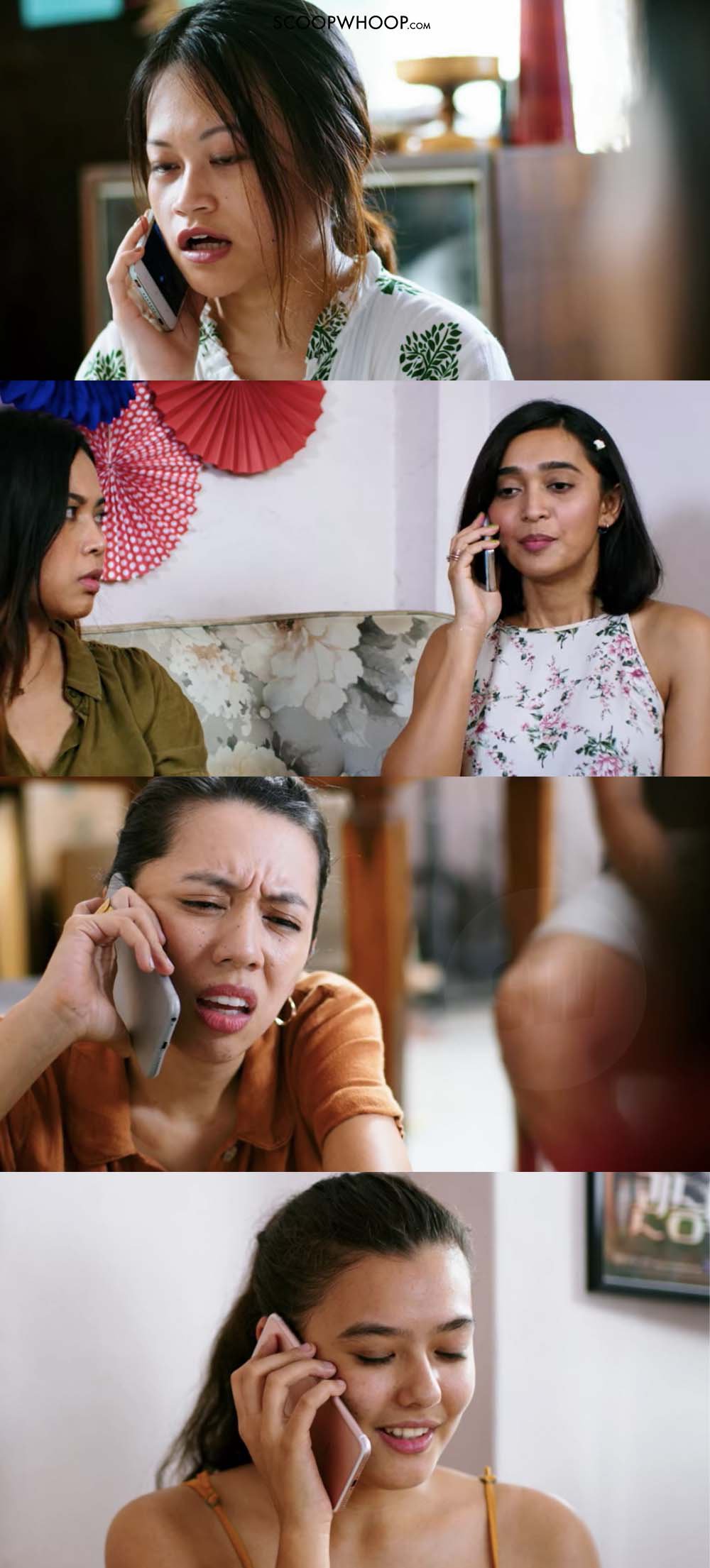
10. When Zorem tells Upasana that Meenum considers her an ‘outsider’.
Upasana spends a huge part pf the movie saying ‘Main hoon northeast ki‘ trying to prove that she belongs.
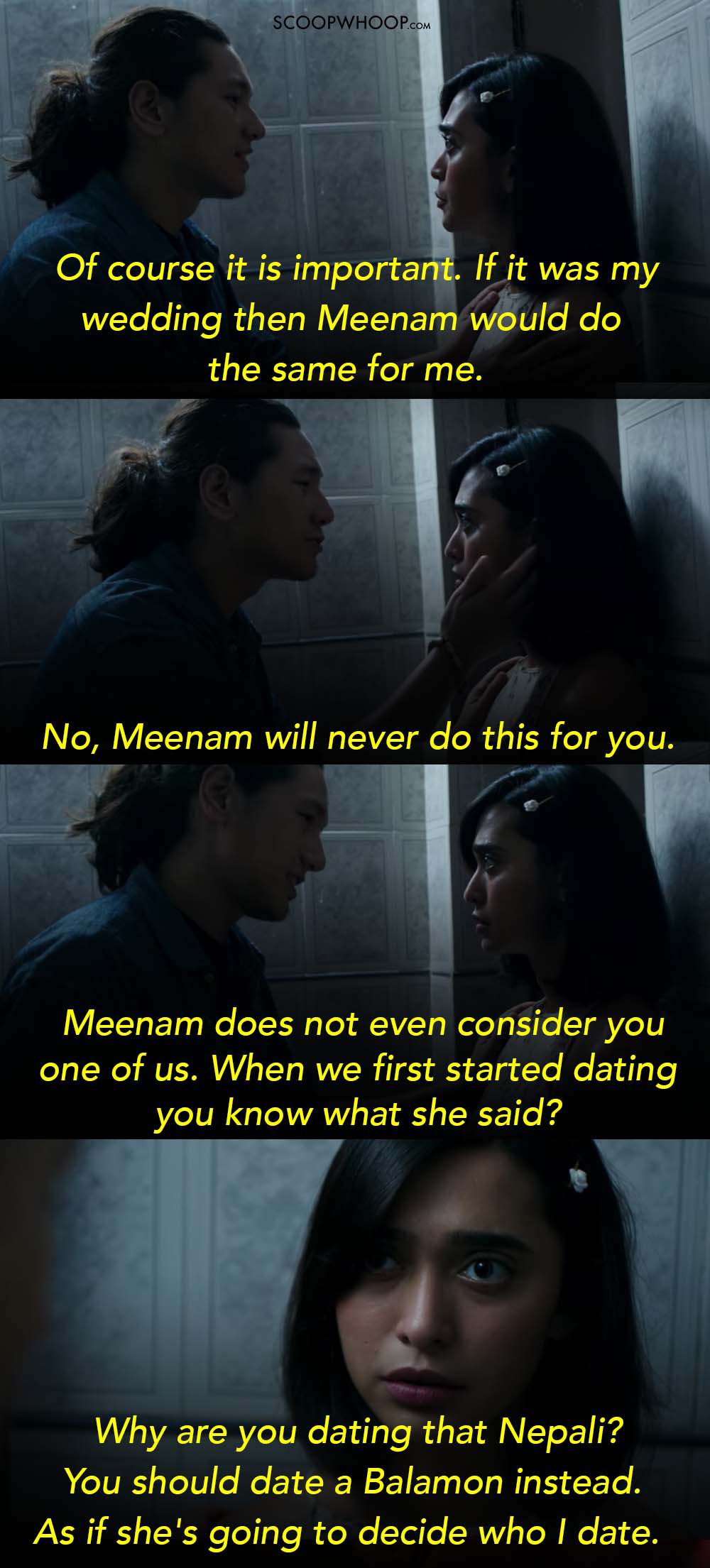
11. When we heard the age old racist line ‘Tum sab ek jaise dikhte ho.’
Our eyes rolled so far back into our heads when we heard this racist uncle talk, but thankfully, it was followed by the perfect clap-back.
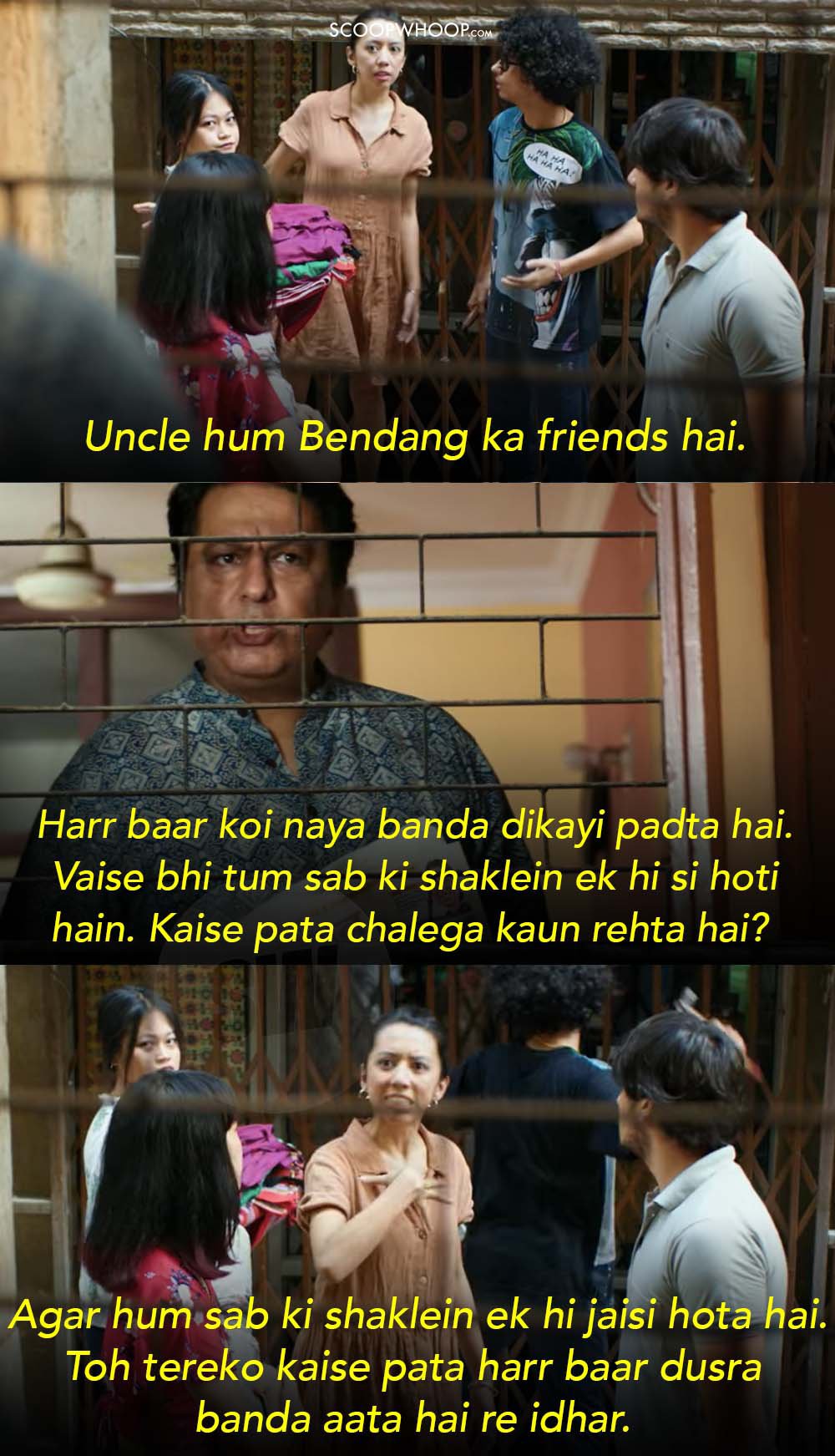
12. When Bendang has a nervous break down because he couldn’t stand up beside Chanbi.
This scene is a stark reminder of the mental anguish that accompanies racism and harassment. The scene also normalised taking a pill to stay calm in the case of a panic attack.
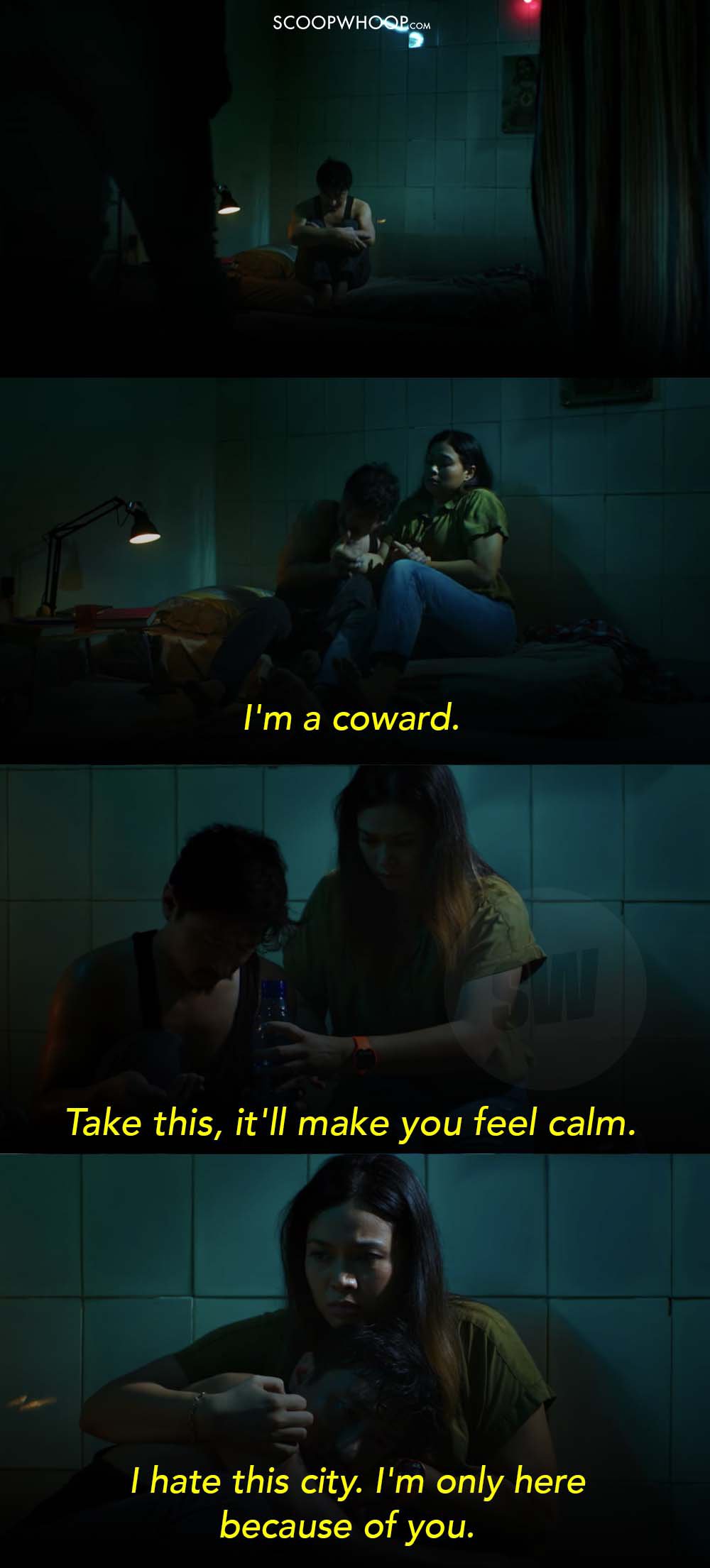
13. When we finally find out what happened to Bendang in the past.
Bendang’s past comes out in the open when Zorem tells Upasana what happened all those years ago.
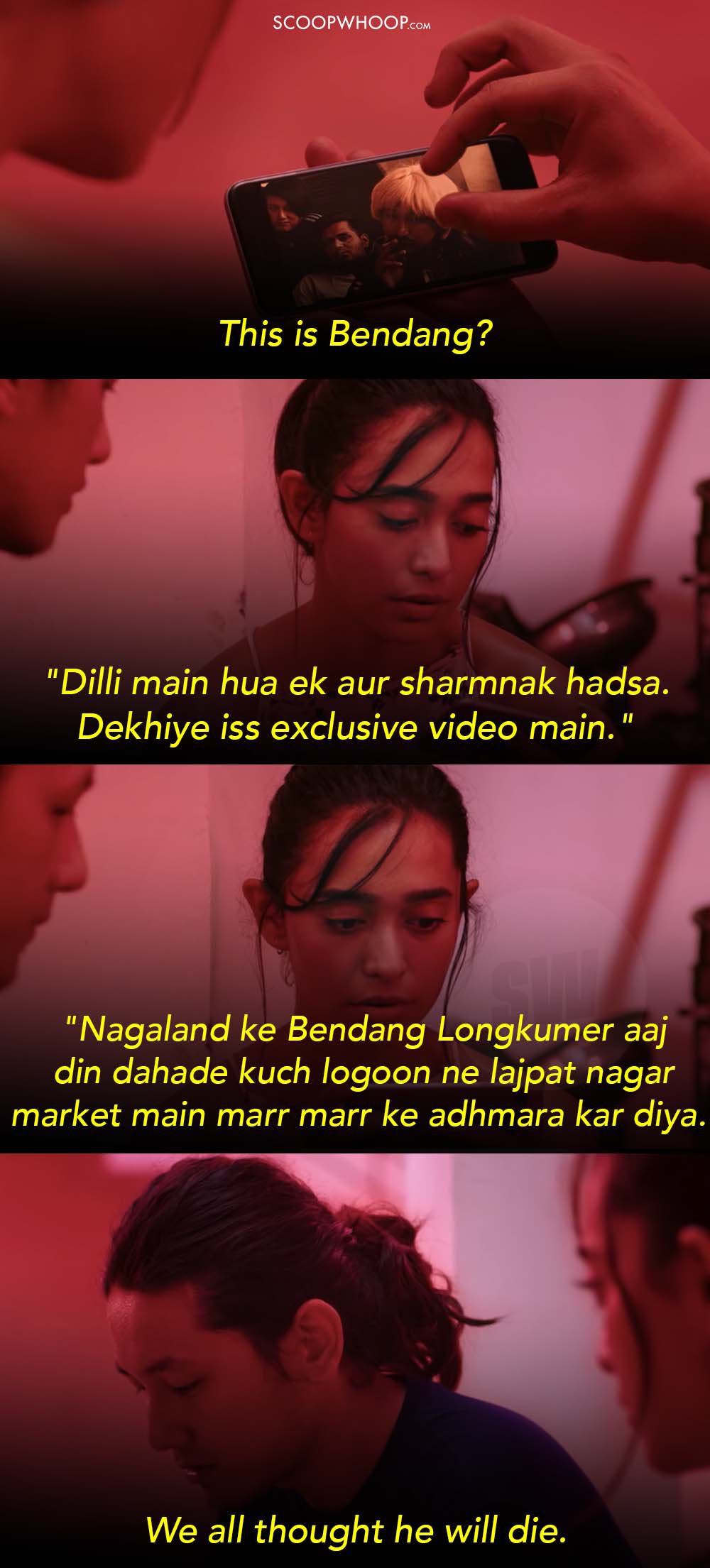
14. When we finally see Chanbi get the last word when her harasser returns.
Chanbi makes sure to point out that maybe her harasser learned how to hit women from his father.

15. When the Axone is finally ready!
With the help of Vinay Pathak aka the landlord and Shiv, Upasana finally gets the Axone ready on the balcony with a tiny stove.
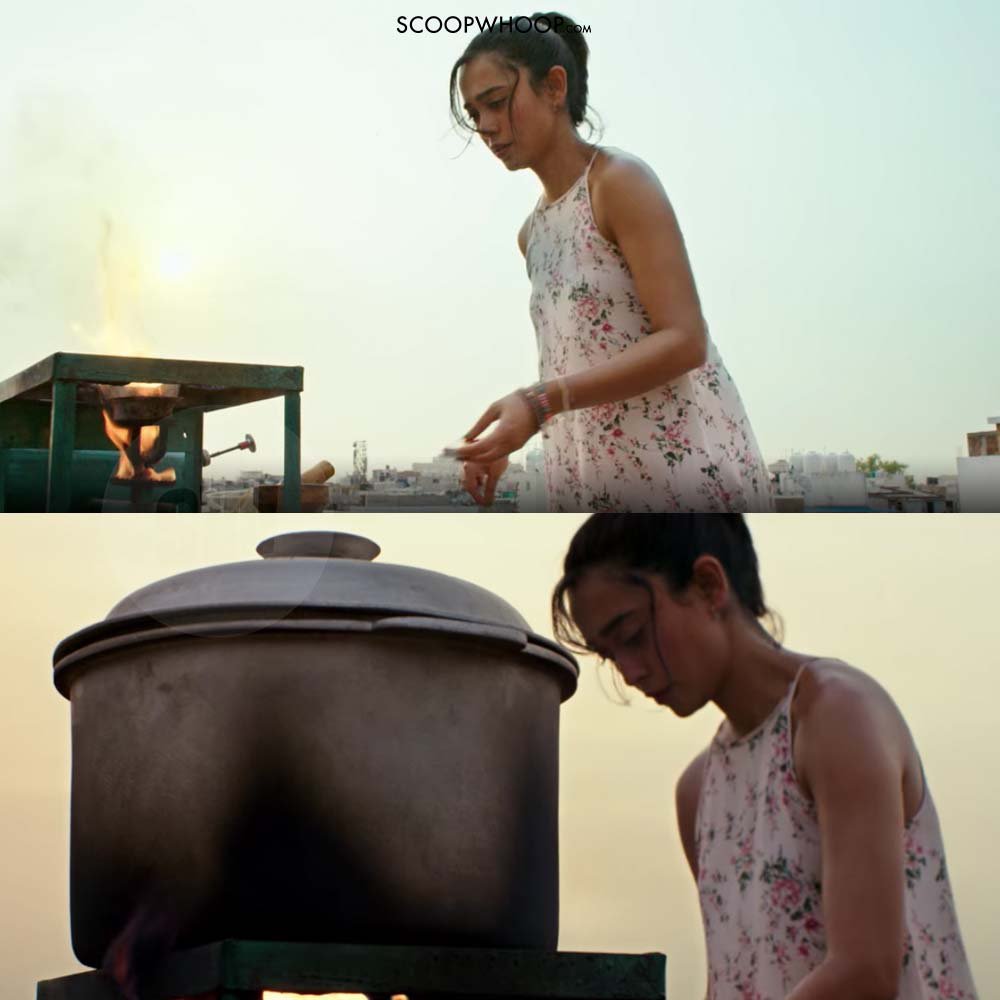
16. When Bendang pushes away Shiv and calls him a ‘Bloody Indian’.
This scene brings forth the importance of Shiv’s character in the movie. The outsider who manages to make them all believe that they could be accepted and in return, accept those who are different.
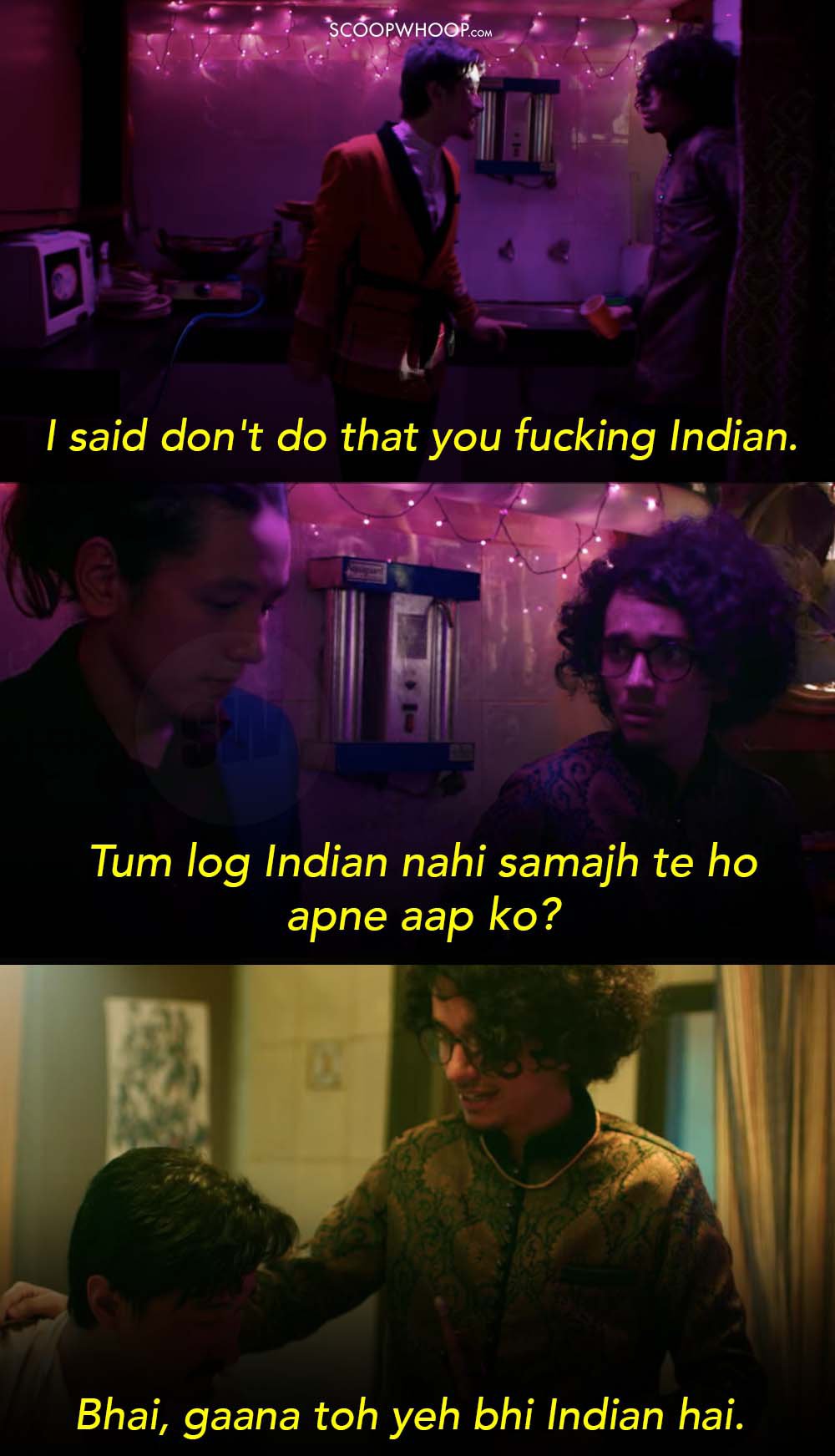
17. Literally every scene with Adil Hussain in it.
This man watches Zorem pull open and shut the shutters of his shop through the day, trying to make sense of what is happening.
